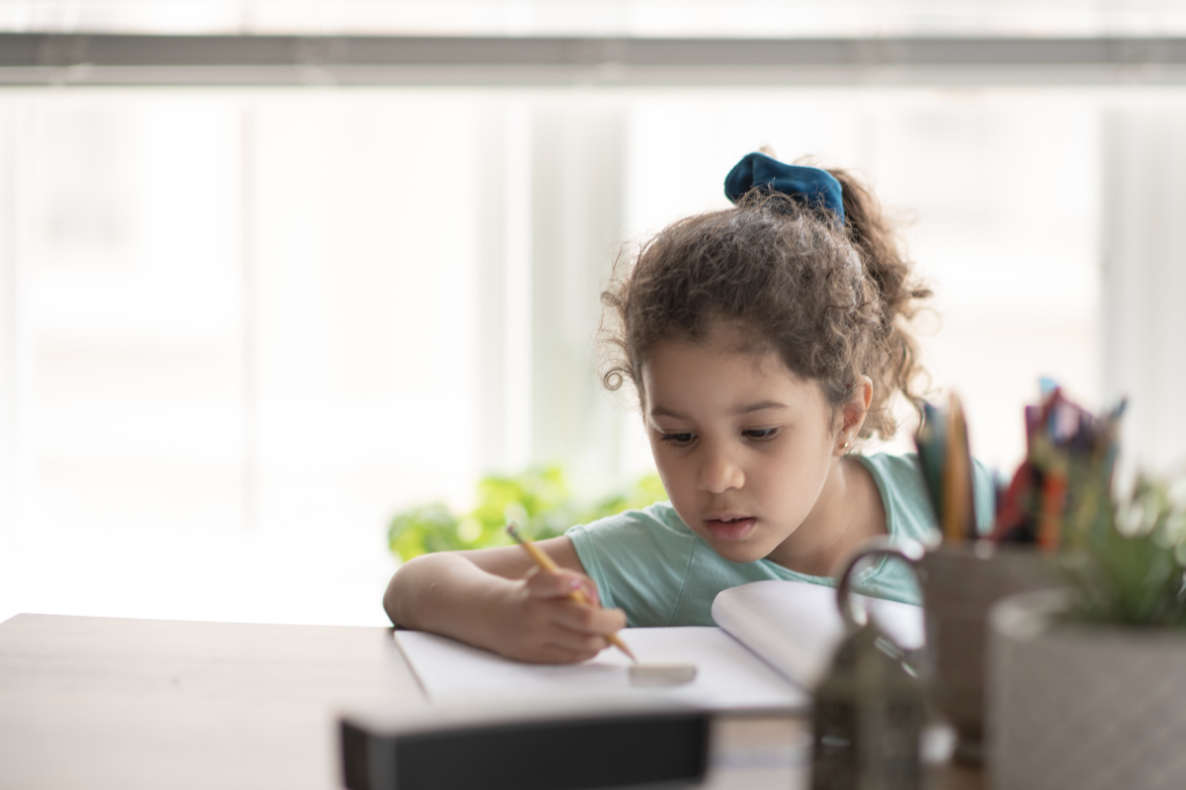By Kate Schleigh, School Based Therapist
The closing of school for the remainder of the school year to protect public health has thrown parents into the role of full-time teacher. This is a role that most parents are unaccustomed to fulfilling. Here are few tips to help make the at-home school time successful.
- Know your child. Just like adults, all children have unique personalities, preferences, and learning styles. You know your child. How does she like to learn? What subjects light them up? Does he enjoy reading and writing or learning by doing? The more you know, the more you can support them in their at-home schooling experience. Maybe they’ll be more frustrated when working on specific topics, and breeze through others. Perhaps they can focus for long periods of time and need to be reminded to eat, or maybe 10 minutes of focused learning is enough and then they need a jumping jack break. There’s no right way to do this; follow your instincts.
- Set up a designated time and place for learning. Having a specific space in your home for learning (and working!) is a good psychological cue that it’s time to get some stuff done. Even if you’re working in confined spaces, create a learning nook! This could be a part of the couch, a chair pulled up to a make-shift desk, or a comfy bean bag and pop-up table. You can get creative! It’s important to NOT have school time happen in your child’s bedroom, though. Having separate spaces for fun, sleep, play, and schoolwork is important.Now, once you’ve set up your spot and time, it might not go as well as you planned. Sometimes your child is going to be ready to focus and other times not at all. That’s okay! This is the upside of physical distancing and schooling at home. You can learn anytime. Of course, you want to use schedule and structure as your starting place, but if it’s not working, try something else. Mix it up. Put down the worksheet and go outside and explore. There’s so much to learn out there! Or, decide together what would help get and stay focused. A quick break? Okay, for 15 minutes. A snack? Okay! This is a time for grace for yourself and grace for your child. It will get done. And if it doesn’t, that’s okay too. You and your child are doing the very best you can.
- Remember “first this then that.” Everyone has things they love and things they don’t. Use this to motivate your child. First do the reading (which you don’t love) and then we will do the science that’s your favorite. This time-honored technique can get you through so many un-preferred activities.
- This is a good time for passion projects. While this is a stressful and unplanned time, it also offers opportunity to follow some inspiration! Maybe your child suddenly becomes fascinated by the plants popping up outside. Take some time together (or you can do it alone and share) to create a little field book or resource deck about the plant names and fun facts about them. Or perhaps your child has always wanted to sew – do it! Learning happens all the time, not just in the systems of the classroom. In fact, these passion projects can bring balance and joy within the unknown and at times scary moments of a global pandemic.
- Free online resources are amazing! But this is just the beginning. There are so many resources out there that can support your child’s learning, it can be easy to get overwhelmed or stuck in a research spiral! Here are a few resources we recommend:
- For kids 2-7, Khan Academy Kids is a great website.
- For older kids, the sister website, Khan Academy provides a world class education on a multitude of subjects.
- Scholastic Learning at Home has nearly 3 weeks of easy projects for kids to complete.
- For kids interested in the arts, author/illustrator Mo Willems has a daily drawing lesson on YouTube.
- Be forgiving of yourself and your kid. This is new territory for all of us, and you probably never imagined you would be schooling from home full time with no notice. Perhaps you are balancing multiple kids at home, or a full-time job, or all kinds of other things that might get in the way of being a full-time teacher. This is okay, you are good enough, and you’re doing just fine. You are the exact right parent or caregiver for your child.
And when your child gets frustrated, or starts acting out, or just can’t stop talking, remember this is new for her too. Everything has changed. A daily schedule, social interactions, routine, the things they could count on have all shifted. Sometimes we’re going to hit our limits. So, take a breath, remember this is temporary, and do what you and your child needs. Is it an ice cream break? Go for it. Is it a hug? Give one. Is it to cry? We get it.
At the end of the day, there’s no right way to maneuver through this time, but we hope these tips give you some guidance and support to help get through the next few months. This is temporary, overwhelming, and new territory. You’re exploring it for the first time with your child. This is exciting and it’s scary. Lean into that vulnerability and know you will be okay.
About the author: Kate Schleigh is a Mental Health Provider in the William Penn School District. She has held this position since 2016, and prior, she worked in BHRS starting in 2005. She holds a BA in Political Science from Lock Haven University.

